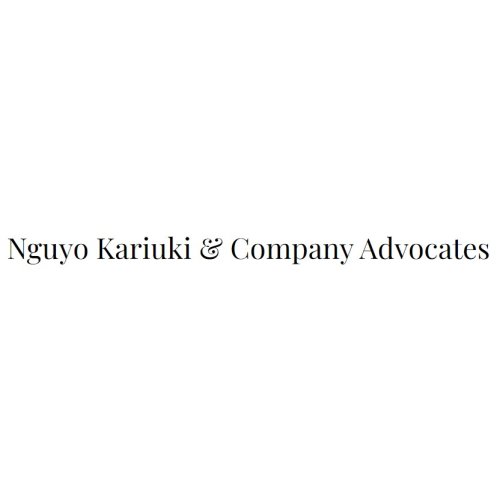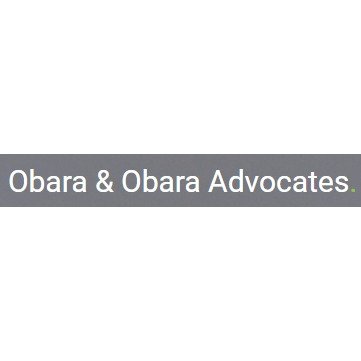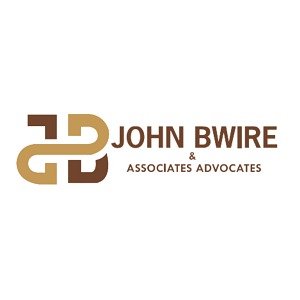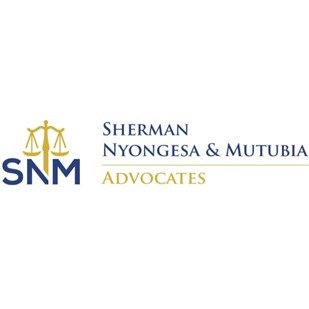Best Employment Rights Lawyers in Mombasa
Share your needs with us, get contacted by law firms.
Free. Takes 2 min.
List of the best lawyers in Mombasa, Kenya
About Employment Rights Law in Mombasa, Kenya
Employment rights in Mombasa, as in the rest of Kenya, are primarily governed by the Employment Act, 2007, which provides a regulatory framework for the fundamental rights and duties of employers and employees. This comprehensive piece of legislation is aimed at promoting fair labor practices and ensuring the protection of employees against exploitation. Common rights covered under this framework include working hours, leave, wages, and the conditions for termination of employment. Mombasa, being a major economic hub, follows the same national employment standards but may have unique local regulations and workplace norms.
Why You May Need a Lawyer
There are various scenarios where seeking legal advice on employment rights can become necessary. These may include disputes over wages or unfair dismissals, discrimination or harassment at the workplace, non-compliance with stipulated leave days, or unfair contractual agreements. Moreover, companies operating in Mombasa might face differing interpretations of employment laws or may need assistance in structuring employment contracts to comply with local laws. A lawyer specializing in employment rights can provide guidance on legal entitlements and obligations, help in the interpretation of employment laws, and represent parties in legal proceedings.
Local Laws Overview
The Employment Act, along with other labor-related legislation such as the Labour Institutions Act and Occupational Safety and Health Act, outlines the key legal parameters for employment in Mombasa. Some essential elements include minimum wage directives that are periodically reviewed and set by the government; standard working hours where employees are generally expected to work a maximum of 40-52 hours per week; and provisions for paid annual leave, maternity and paternity leave, as well as sick leave. Mombasa may also experience unique working conditions due to its coastal and tourism-focused economy, influencing aspects like seasonal work and employment contracts.
Frequently Asked Questions
What is the legal minimum wage in Mombasa?
The minimum wage in Mombasa is determined by the Wage Bill set by the Kenyan government, which varies based on job categories and the cost of living in urban areas. Employees should ensure they receive at least the minimum wage as stipulated to prevent exploitation.
What are the rights related to termination of employment?
Employees are entitled to be provided with adequate notice or pay in lieu of notice if their employment is terminated. The grounds for termination must be lawful, and employees can seek redress if they believe the termination was unfair.
How is annual leave calculated?
The Employment Act mandates the provision of at least 21 working days of annual leave with pay after 12 consecutive months of service. Employees should consult their contracts for specific details.
Am I entitled to maternity/paternity leave?
Yes, female employees are entitled to three months of maternity leave with full pay, while male employees are entitled to two weeks of paternity leave as part of their employment rights.
What constitutes harassment or discrimination in the workplace?
Any behavior that demeans, humiliates, or threatens a person based on race, religion, gender, or other personal attributes could be considered harassment or discrimination. Employees facing such issues can seek legal assistance.
What should I do if my employer is not complying with labor laws?
If an employer is not complying with labor laws, an employee can report the issue to the Labour Office or seek advice from a legal professional specializing in employment law for representation and litigation if necessary.
Are there provisions for overtime pay?
Yes, employees required to work extra hours should be compensated according to the overtime rates set in their employment contracts or the applicable labor laws, often time and a half.
Can employment contracts be verbal in Mombasa?
While verbal contracts are legally valid, written contracts are strongly recommended as they offer clear terms of service and protect the interests of both parties better in case of disputes.
How are disputes resolved in Mombasa?
Labor disputes can be resolved through mediation or adjudication by the Industrial Court of Kenya. Employees and employers may also seek Alternative Dispute Resolution mechanisms.
What are my rights during redundancy?
If a redundancy occurs, the employer must follow specific procedures, including informing and consulting with employees, as well as paying severance packages as required by law.
Additional Resources
Individuals seeking legal advice on employment rights can refer to numerous resources for assistance, such as the Ministry of Labour and Social Protection, Kenya National Commission on Human Rights (KNCHR), or the Federation of Kenya Employers (FKE). Legal aid centers and NGOs focusing on labor rights can also offer support.
Next Steps
If you require legal assistance with employment rights in Mombasa, consider consulting with a lawyer who specializes in employment law. You can initiate this process by contacting a legal firm, scheduling a consultation to discuss your case, and gathering all relevant documents and information related to your employment status and issue at hand.
Lawzana helps you find the best lawyers and law firms in Mombasa through a curated and pre-screened list of qualified legal professionals. Our platform offers rankings and detailed profiles of attorneys and law firms, allowing you to compare based on practice areas, including Employment Rights, experience, and client feedback.
Each profile includes a description of the firm's areas of practice, client reviews, team members and partners, year of establishment, spoken languages, office locations, contact information, social media presence, and any published articles or resources. Most firms on our platform speak English and are experienced in both local and international legal matters.
Get a quote from top-rated law firms in Mombasa, Kenya — quickly, securely, and without unnecessary hassle.
Disclaimer:
The information provided on this page is for general informational purposes only and does not constitute legal advice. While we strive to ensure the accuracy and relevance of the content, legal information may change over time, and interpretations of the law can vary. You should always consult with a qualified legal professional for advice specific to your situation.
We disclaim all liability for actions taken or not taken based on the content of this page. If you believe any information is incorrect or outdated, please contact us, and we will review and update it where appropriate.

















